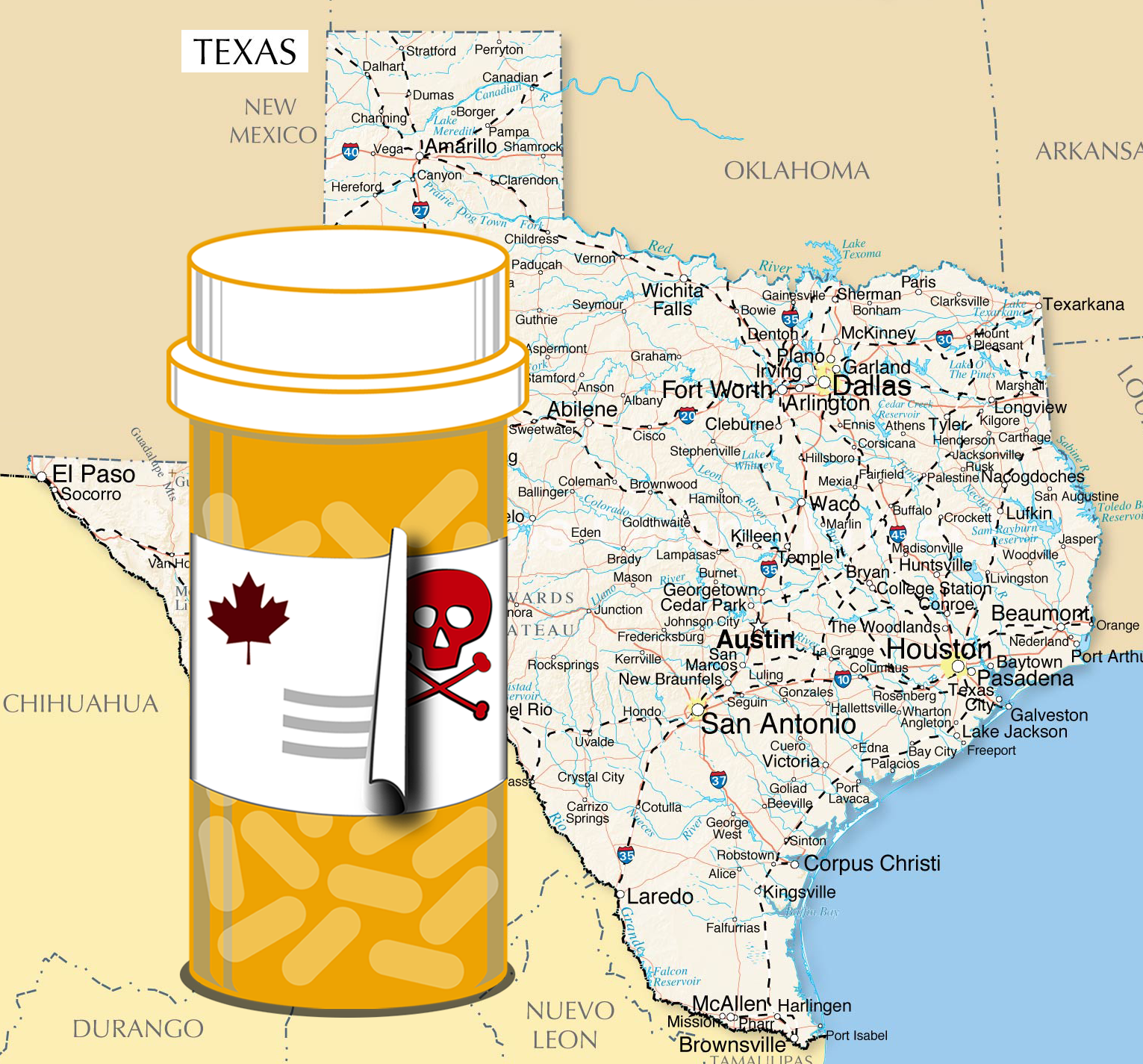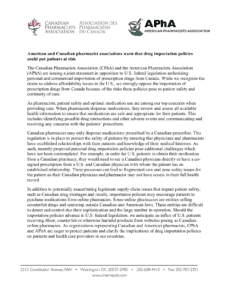Drug Importation in Texas: An Overview

Current status:
The Texas Legislature introduced House Bill 25, the Wholesale Prescription Drug Importation Act, in November 2022. PSM shared an analysis of the bill with the Texas House committee that you can read.
The bill which has been signed by the Governor, will require the executive commissioner of Texas's Health and Human Services Commission to take action to establish Canadian drug importation beginning in September 2023. The agency shared a report about the program in December 2023.
Synopsis / Media Contact
H.B. 25 requires Texas’ Health and Human Services Commission to design a program for bulk importing prescription medicines under 21 USC 384 of the U.S. Food, Drug, and Cosmetics Act, more commonly known as a Section 804 State Importation Program (SIP).
For over two decades these programs have proven to be impossible to build safely because:
- Canada refuses to release bulk medications to these programs and has taken steps to restrict U.S. access to their drug supply;
- Canada does not have a Track and Trace program;
- The cost of testing imported medication far outweighs the savings; and
- Medicaid programs already get medicine cheaper than Canadian provinces, reducing any potential savings.
This legislation has been pushed without concern for the consequences. As many states discovered during the pandemic trying to buy hard-to-find N95 masks, buying medical products that aren't readily available creates great risk of counterfeit products. PSM believes that the Texas legislature is forcing it's patients and pharmacists to take unacceptable risks with patient health and pharmacist liability by enacting this program without looking at the risks.
PSM Executive Director Shabbir Imber Safdar is available to do interviews to explain the risks of this program to media. Contact him through editors@safemedicines.org and specify your print deadline.
Official actions and statements
- December 1, 2023: Texas Health and Human Services submits its Wholesale Prescription Drug Importation Program Report to the governor and state legislature.
Planning documents
- HB 25: Text | Fiscal Note | Bill Analysis
Background / resources
Just learning about the Texas foreign drug importation proposal? Start with some of these resources that outline the safety issues.
PSM Materials:
Op-eds from the Experts
Counterfeits coming from Canada have been a big issue in the Sunshine State. The FDA has identified dozens of counterfeit drugs coming into Florida from foreign pharmacies.
“Several other states have attempted to legalize drug importation, but all have failed to show that it’s safe or saves money. The federal government has determined multiple times that drug importation can’t be done safely. I hope, for the sake of Floridians, that state policymakers come to that same conclusion.”
In this editorial, published in The Missouri Times on March 11, 2019, Gregg Keller warns that “the issue at hand is not so much the safety of Canadian drugs but the dangers of the global drug trade. Often, pharmacies that claim to be “Canadian” are anything but.”
In this March 5, 2019 editorial, published on the National Association of Manufacturers blog, Robyn Boerstling, the organization’s Vice President of Infrastructure, Innovation and Human Resources Policy, raises concerns about Florida’s drug importation proposal.
It isn’t just policymakers who believe drug importation will open the U.S. drug supply to counterfeits. In this editorial, published in the Times of Northwest Indiana on March 6, 2019, HIV-positive advocate Brandon Macsata explains that his own physician objected to ordering medicine from Canadian online pharmacies:
“It never crossed my mind that I might have been taking counterfeit medicine, or that the medicines meant to control my HIV could be compromising my immune system. So when my doctor found out, she told me to stop immediately. She warned me that online pharmacies often sell counterfeit drugs.”
The Canadian Pharmacists Association (CPhA) and the American Pharmacists Association (APhA) have issued a joint statement in opposition to U.S. federal legislation authorizing personal and commercial importation of prescription drugs from Canada.
“While we recognize the desire to address affordability issues in the U.S.,” they write, “we strongly oppose the importation of prescription drugs from Canada because of the risks these policies pose to patient safety and
continuity of care.”
In this
In this February 4th, 2019 editorial for Colorado Politics, Denver resident Ali Schroer warns, “I experienced firsthand the dangers of counterfeit, imported drugs, and was critically ill for months as we sought to uncover the source of my illness.”
In this editorial, which first appeared in The Washington Times on January 29, 2019, former FBI Director Louis J. Freeh revisits the problem drug importation poses to law enforcement and regulatory systems already overburdened by the opioid crisis.
In this January 30, 2019 editorial, which was published in the National Association of Manufacturer’s Shopfloor blog, Vice President of Infrastructure Robyn Boerstling warns that even though legislators have good intentions, importation could “result in disastrous outcomes.”







